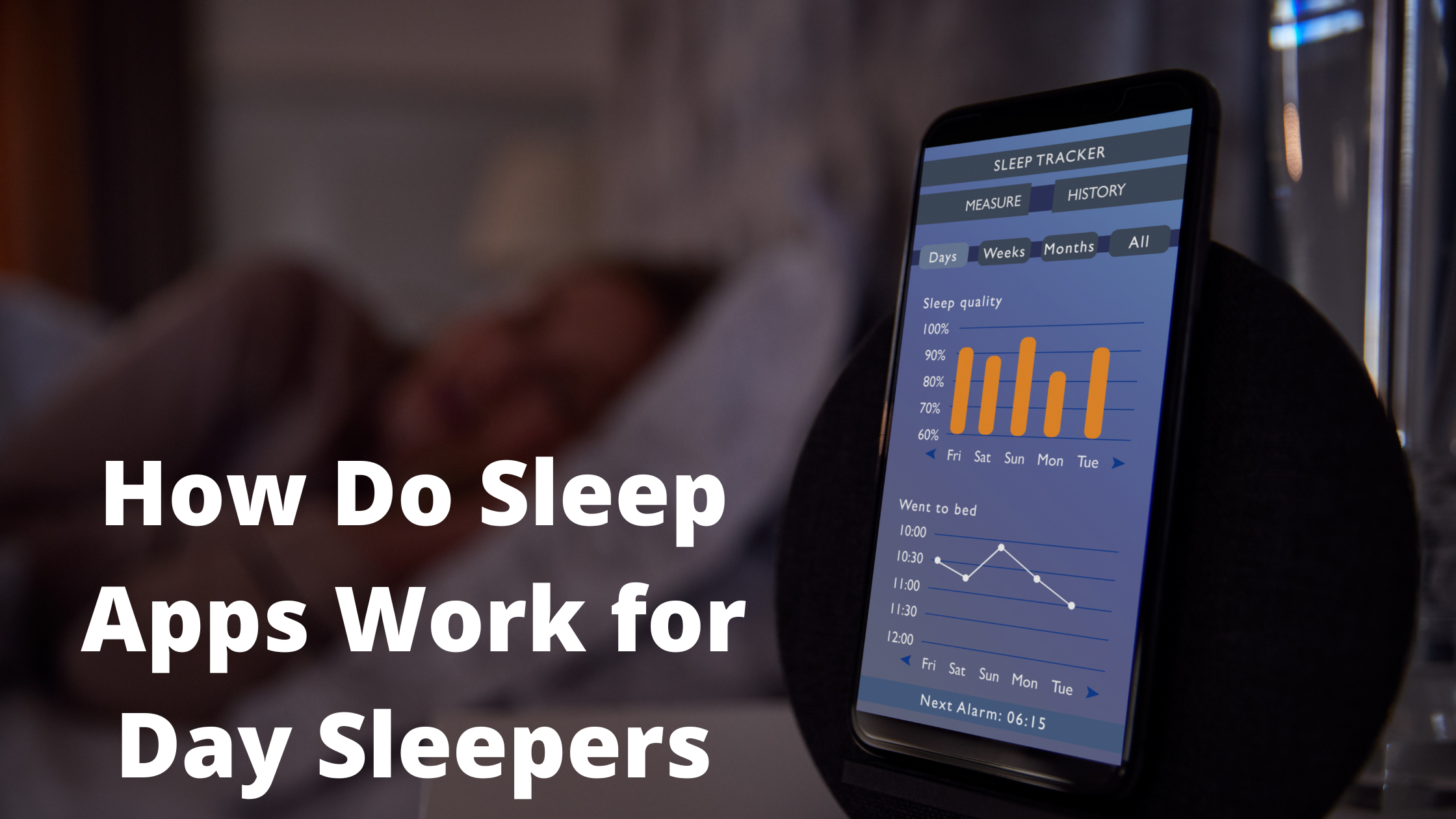
It's no secret that our entire world is becoming increasingly digital by the moment. Sleep apps are just the latest representation of this new way of life. But how exactly do sleep apps track sleep?
Well, the sleeptech market is growing. Research and Markets estimates that the sleep-tech-device revenue will increase from $12.9 B - $49.9 B from 2020 to 2030. More and more people are paying attention to their health and turning to wearables, sleep tracker apps and other accessories that can be used to help everyone get a good night's sleep.
Day sleepers, however, have a different set of needs and challenges. Nontraditional sleepers, like shift workers, create an additional challenge to the way companies collect data and offer sleep recommendations. Continue reading to see how some sleep apps are accounting for day sleeper's routines and what is to come.
What are Day Sleepers, and What Sleep Challenges Do They Face?
Day sleepers are those that work at night and are therefore forced to sleep during the day. Many day sleepers may be shift workers whose schedules fall outside traditional work hours. Shift workers compromised more than 15% of US employees. Some adjust just fine while others struggle to adapt.
Shift work can create extreme disruptions to circadian rhythm, which can lead to shift work disorder and other health issues. Some of these issues include decreased ability to remember and process information. Other shift work-related diseases include heart disease, alcohol and drug dependency, poor diet and other serious medical issues.
However, there are benefit to being a shift worker. Shift workers often get paid more, have more flexible schedules, and can potentially spend more time with their family.
How Sleep Apps Work
Sleep apps can truly help measure the sleep activity of all users, including shift workers. They can track certain data points like time spent in bed, total sleep time,sleep efficiency, and sleep latency - or how long it takes to fall asleep. Apps can also track how many times you've woken up throughout the night.
Research on the effectiveness of sleep apps is still limited. Many apps only serve limited functions such as alarms or providing calming sounds for sleep. But, the apps that offer more functions - like sleep tracking - have received ratings that deem them acceptable.
Some of these apps may no be able to help day sleepers specifically, but provide information on circadian rhythm, sleep timing, and then allow users to apply that information to their sleep health.
Addressing Circadian Rhythm
Day sleepers' schedules may not align to typical circadian rhythms. Sleep apps and trackers can't help with circadian misalignment or shift workers and their strange schedules. The only way to help shift workers is to optimize their sleep, alertness,health and quality of life is to apply some sort of individualized circadian management. There is an app created by Timeshifter called Shift Work that offers advice and guidance for shift workers, which the premise that they struggle a lot with a disrupted circadian rhythm.
Beyer-Clausen says that Shift Work will look at user's schedule, chronotype, and offer advice to optimize their sleep. Eventually, the app will be able to give advice on the best time to eat, context, and when to avoid exercise.
Tracking Around the Clock
Another issue that day sleepers may face when trying to track their sleep is the limitation of the 24-hour clock that starts over everyday. Many daysleepers are still awake at midnight which is when sleep apps register a new day.
Another developer, called WHOOP, says that their app changes over the day for app users at the start of their primary sleep schedule. This way, data is organized as users experience them, rather than by the clock. This new technology allows users to set their sleep schedule within the app. The settings are customized to the user instead of to the time zone.
This technology, in conjunction with other tracking apps and wearables such as Pillow, Oura, and Sleep Cycle, all come together to help users understand how long they're sleeping, what time they go to sleep, their sleep quality, and how these data points may change over time.
As technology continues to progress, this will only mean positive advances for those who are interested in tracking their sleep and learning more about their habits. Also, the more individualized these tracking devices become, the easier it will be to follow everyone's individual schedules and sleep habits.
If you are concerned about your sleeping and want to know how to improve it, then please click the orange button below to take a free online sleep test and work with one of our sleep health professionals.
https://www.sleepfoundation.org/sleep-news/what-safe-sleep-for-babies-act-means-for-kids

